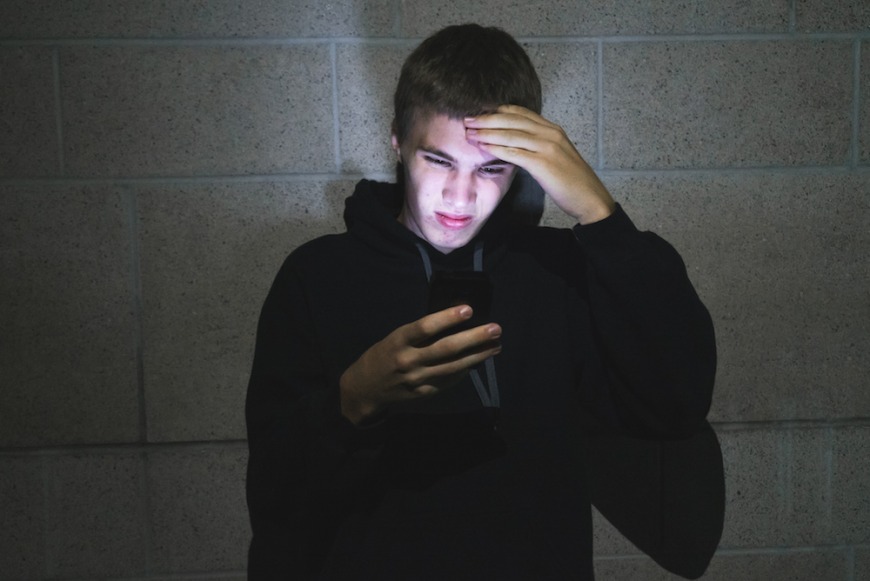Ask an Expert: When Is The Right Time To Let Your Kids Have An Instagram Account?
Social media rules suggest 13, but children half that age can be seen posting online.
9 April 2019

Lots of parents are social media addicts (even if we’re not really aware of it), so it’s no surprise that our children fancy having their own accounts. And while many mums and dads will blanket ban Instagram until teenage years commence, there are plenty of others adopting a watchful eye and encouraging their kids to utilise it. So, who’s got it right?
“The best age is when a child is able to recognise the real risks involved with having such an account, and where they could be made vulnerable to exploitation,” says Dr Fivos Cacoullis, a child and adolescent psychiatrist at Cardinal Clinic (cardinalclinic.co.uk). “I would say somewhere around the age of 13 for most children.”
Mum, writer and artist Vickie Neave, also agrees: “In an ideal world, I would love to say 14, but the pressure is intense. They [my kids] ask daily. It seems like hourly. It’s not a case of giving in, but once you feel they are ready.”

She suggests that at around 13, kids could have an account that parents can see and monitor. So, “they have to show us the photo they want to post and the comment they want to make. That way, we can talk through the mistakes. Even if it is simply their spelling and grammar”.
But there are plenty of parents allowing much younger children to have private accounts, arguing that it’s helping to ready them for the (potentially) big, bad world of social media. And that as well as the downsides – kids seeing post after post of ‘perfect’ lives from ‘perfect-looking’ people – there are a lot of body positivity campaigners, and people to follow who can instil happier messages.
How Can Parents Make Social Media More Positive For Their Kids?

“When initially setting up an account for children, parents should engage their children in constructive use of the social media platform – try collaborative and fun activities with friends and family members,” says Jackie Marsh, professor of education at the University of Sheffield. “Positive and supportive parenting is important for fostering online resilience. Restricting children’s access to age-appropriate social media, and focusing only on its harmful effects, can make children fearful and unable to deal effectively with risks. Talking to children about their use of social media, and about the reasons why parents have the rules that they do, is essential.”
By talking through each post, you can discuss what could be deemed as negative, adds Neave. “Kids do not always have an agenda with their posts and therefore don’t think about how it might be perceived. Try to focus on good photography (rather than a sea of selfies), but the most important thing we can teach children is tone of voice. The positive side of social media will eventually shine through, but that can only be enjoyed if you make children aware of the negative aspects, so they’re prepared. Although this is not just the case for kids – this counts for everyone!”
How Should Parents Monitor An Instagram Account?

Children may come across inappropriate content online, and Marsh stipulates that it’s important parents don’t overreact, or blame their teenagers. Instead, talk to your child about how the content was accessed, and how it’s affected them. “When setting up a social media account for children, parents should ensure the data privacy and safety controls are managed, and teach children how to do this for themselves,” she adds. “Parents should also talk to their children about the notion of a ‘digital footprint’. That is, when we post media to some sites, it’s then difficult to remove it. Whilst they may be happy to share particular material now, how might they feel when they are older?
“Knowing how to manage challenging situations online is important. If, for example, parents and children are subject to criticism on social media, they should learn to stand back and not respond immediately, but to consider the implications of posting a hastily-worded response that might be misconstrued. Parents should talk to children about how they use social media, so children feel they’re able to open up about their experiences. Parents should agree with their children that one of the rules for allowing them to have a social media account is that they should let parents know who they are communicating with. This will enable parents to monitor the children’s contacts to ensure they’re appropriate.”
Michelle Napchan, Instagram head of public policy for EMEA, says: “The most powerful thing about Instagram is the global community who feel comfortable and safe to express themselves, including millions of teenagers. But we’re aware there can be downsides, and for young people to feel able to express themselves, they also need to feel safe. We invest in tools to make sure they can report and block content that concerns them, get support on issues when they need it and connect with experts when they might need help. We know parents are crucial to keeping teens safe online, so we work to provide tips and resources through the Instagram Parents’ Guide. We always continue to invest in new ways to keep our community safe, including using machine learning to automatically detect abusive or bullying comments that could cause harm, and stop them from appearing on anyone’s feed. We believe we have a responsibility to not only keep our community safe, but to also make sure people are having a positive experience on the platform.”
If You’re Worried About Your Child, What Should You Do?


























.png?itok=SvZPqMHH)




.png?itok=uB2ieOR7)












